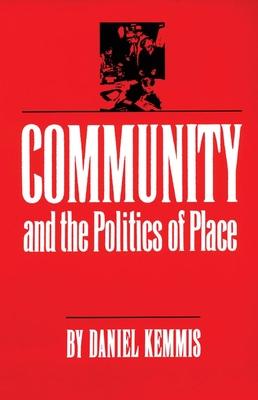Thomas Jefferson envisioned a nation of citizens deeply involved in public life. Today Americans are lamenting the erosion of his ideal. What happened in the intervening centuries? Daniel Kemmis argues that our loss of capacity for public life (which impedes our ability to resolve crucial issues) parallels our loss of a sense of place. A renewed sense of inhabitation, he maintains --of community rooted in place and of people dwelling in that place in a practiced way--can shape politics into a more cooperative and more humanly satisfying enterprise, producing better people, better communities, and better places.
The author emphasizes the importance of place by analyzing problems and possibilities of public life in a particular place-- those northern states whose settlement marked the end of the old frontier. National efforts to "keep citizens apart" by encouraging them to develop open country and rely upon impersonal, procedural methods for public problems have bred stalemate, frustration, and alienation. As alternatives he suggests how western patterns of inhabitation might engender a more cooperative, face-to-face practice of public life.
Community and the Politics of Place also examines our ambivalence about the relationship between cities and rural areas and about the role of corporations in public life. The book offers new insight into the relationship between politics and economics and addresses the question of whether the nation-state is an appropriate entity for the practice of either discipline. The author draws upon the growing literature of civic republicanism for both a language and a vantage point from which to address problems in American public life, but he criticizes that literature for its failure to consider place.
Though its focus on a single region lends concreteness to its discussions, Community and the Politics of Place promotes a better understanding of the quality of public life today in all regions of the United States.
